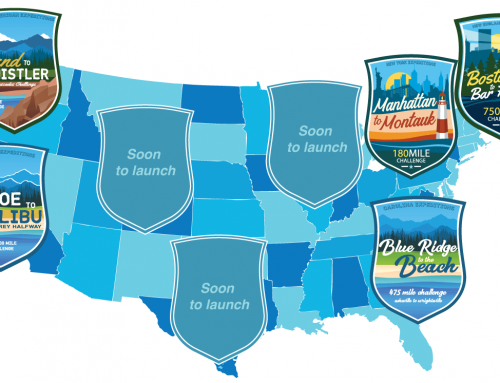by Vickie Leff
The mental and physical requirements of running align perfectly with tasks that improve your mental health. Setting and attaining goals, experiencing success and overcoming frustration, creating and maintaining motivation – these are all things that strengthen your ability to cope with what the world throws at you. We have all heard about the benefits of running: the endorphins that are released, the effect of exercise on stress hormones in the body, maintaining a healthy weight, etc. I want to talk about something different: how running improves your coping skills and ego strength for long-term, sustainable mental-health benefits.
What is it about running, in particular, that improves mental health? There are three basic things specific to running – as compared with most other sports – that can help you develop coping skills and therefore improve your mental health.
• It is an individual sport; you must rely on yourself for results – self esteem/confidence
• There are naturally good and bad days when you run – resiliency
• When you set out on a run, you have set an immediate (and long-term) goal for yourself – motivation/determination
Mental health is the ability to maintain emotional stability and cope with internal and external stress and struggles. Confidence, resiliency, motivation and determination are all central to good mental health. In the psychology field this is sometimes referred to as ego strength: the ability to effectively manage stressful feelings (not to be confused with having a big ego!).
People with strong ego strength approach challenges with a sense that they can overcome the problem, even emotionally grow as a result. They feel they can deal with problems and find new ways of managing the difficulties of life.
Take a look at the demands of running and how these can help your ego strength.
First of all, running is all up to you. You are the only one who reaps the rewards and feels the frustrations of going out for a run. You must rely on yourself entirely. Sure, you get support from your friends, but it’s you doing the work. Each time you finish a run, you have completed a task, building self-confidence.
As most of us know who have been running for a while, there are good runs and bad runs. In my experience, two out of five runs feel good – but that’s just me. Runners have to find a way to
endure those bad runs knowing there will be better days. That effort builds resiliency: the ability to bounce back and anticipate future success in order to try again.
Sometimes I run and my endorphins kick in and I get that “runner’s high.” Honestly, most of the time it is a struggle, I wonder why I’m doing it, and I’m tired! But each and every time I finish what I set out to do that day, I feel a great sense of accomplishment.
The most important aspect of running that improves your mental health is the act of deter- mining a specific and tangible goal for yourself and mustering the motivation to reach that goal. What’s the big deal with a goal? First, it demands that you focus on achievement, belief in yourself that you can do something. Second, it presents a challenge to you as an individual – no one else can run for you, which builds determination. Third, it presents you with countless opportu- nities for success; each time you set out for a run you have gotten closer to the goal. You experience accomplishment. That doesn’t mean you have “successful runs”; it means you are using your motivation and determination – belief in yourself – to reach something you want. And that, in turn, creates a strong sense of self, which helps you cope with life.
Running doesn’t guarantee you will have great mental health. But it does provide you with lots and lots of opportunity to work on and improve how you cope with life. And it’s much cheaper than therapy!
Vickie Leff, MSW, LCSW works as a Clinical Social Worker in Palliative Care at Duke University Hospital. She has worked as a Clinical Social Worker for more than 25 years. She has been running for more than 30 years, completed six marathons, countless road races and has never come in last. She is also the author of “RunnerMom: On The Go,” a guide for moms and other busy gals who run. You can get a copy of her book and read her blog at www.runnermom.com.






